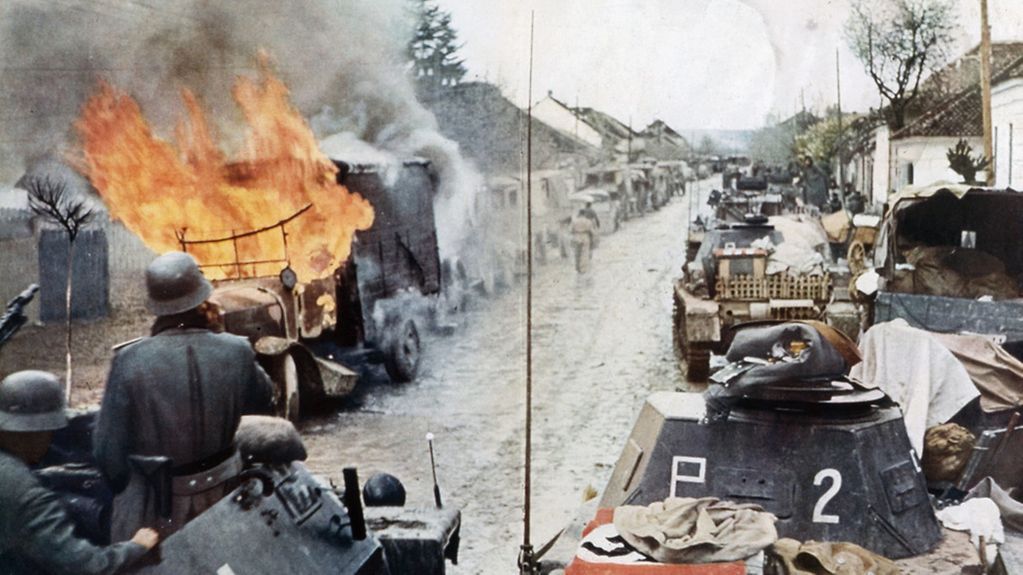75th anniversary of Operation Barbarossa
75 years ago Hitler launched his war of annihilation against the Soviet Union. "We must never forget what Germans did in the Soviet Union," declared Federal Foreign Minister Frank-Walter Steinmeier during a remembrance ceremony in the German Bundestag. Peace in Europe is inextricably bound up with German-Russian relations, he said.
2 min reading time

1941: Operation Barbarossa launched Hitler's attack on the Soviet Union
Photo: picture alliance / Mary Evans Picture Library
22 June is the 75th anniversary of the German Reich’s invasion of the Soviet Union. Under the code name Operation Barbarossa, Hitler unleashed his campaign eastwards. It would leave at least 27 million Soviet citizens dead, most of them civilians.
"The war unleashed by Nazi Germany on 22 June 1941 brought unfathomable suffering to millions of people in what is today Russia, Ukraine and Belarus," said deputy government spokesperson Ulrike Demmer at the government press conference in Berlin. "The German government will always be acutely aware that the peoples of the Soviet Union and the soldiers of the Red Army sustained the highest death tolls."
Remaining in dialogue
"Seventy-five years ago today all hell broke loose," said Federal Foreign Minister Frank-Walter Steinmeier during the remembrance ceremony in the German Bundestag. "We must never forget what Germans did in the Soviet Union."
Germany’s responsibility for peace is Europe is inextricably linked to its responsibility for relations between Germany and Russia, he continued. "We must ensure that this history of extremes is not followed by a future of extremes," warned Frank-Walter Steinmeier.
But there can only be lasting security for Russia with – and not against - Europe. "We must strengthen contacts between individuals," said the Federal Foreign Minister. To this end, he and his Russian counterpart recently opened the German-Russian Year of Youth Exchange, he reported.
Sharing information on prisoners of war
Frank-Walter Steinmeier and his Russian colleague Sergei Lavrov also want to give the many unknown German and Soviet prisoners of war their names back. A joint project is to help search and digitalise archived documents, they announced in a joint statement. The information obtained is to be compiled in an electronic database. Both sides hope that "the names of prisoners of war who died in captivity can be matched with their graves as far as possible".
During the Second World War more than 5.7 Soviet officers and troops were taken prisoner by German forces. For many citizens of the former Soviet Union that meant suffering and death in Nazi Germany. More than three million individuals died as German prisoners of war. Between 1941 and 1945, a total of 3.15 million Wehrmacht solders became Soviet prisoners of war. 1.11 million of them did not survive.
New exhibition in Berlin
A new exhibition at the Potsdamer Platz, in the tourist heart of Berlin, looks at the perpetrators and the victims of the war of annihilation. Plaques provide information about the preparation and planning of the 1941 campaign. At the opening ceremony, Federal Government Commissioner for Culture and the Media Monika Grütters reminded her audience of the eternal duty to keep alive the memory of the atrocities committed by the National Socialists.